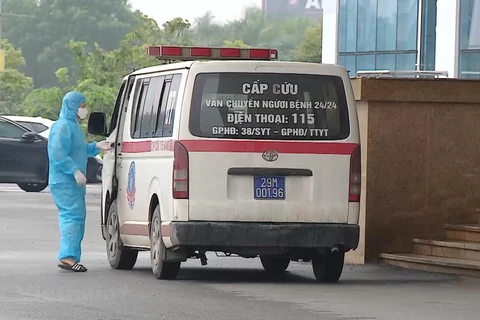Hanoi (VNA) - K.V., a 53-year-old foreign sailor who became sick from anthrax while at sea, recovered within just a week of treatment for the infection in Vietnam.
He said he felt fortunate to be in the country where he received care from dedicated doctors and nurses.
Vietnam has also done well in containing the COVID-19 pandemic, he added. Local medical facilities have therefore proven they are able to treat patients, foreign and local alike, to a high standard.
K.V. is one of the many foreigners who underwent medical treatment in Vietnam during the pandemic.
With initial success in COVID-19 prevention and control, Vietnam could become a trusted healthcare destination for foreigners and Vietnamese living abroad, experts have said.
Associate Professor and Dr. Nguyen Lan Hieu, Director of the Hanoi Medical University Hospital, said Vietnam has secured a new image in the eyes of international friends for its smart selection of measures to fight the coronavirus despite having limited resources.
The country gained success in both prevention and treatment, in particular the treatment of severe cases, which gives it a great opportunity to promote its healthcare sector and attract foreign as well as local patients.
Hieu explained that large numbers of Vietnamese travel abroad to seek medical care. The pandemic made this difficult, however, and was an opportunity for the local medical sector to prove its worth.
He also pointed to a range of difficulties faced by the local sector, firstly how to be transparently self-reliant and attract patients from around the world.
The Ministry of Health needs to introduce circulars guiding hospitals investing in equipment and services, Hieu said and suggested stepping up IT application and setting prices for services.
To win the confidence of patients in general and foreigners in particular and to satisfy their requirements, expertise of doctors plays the most significant role, he said, adding if Vietnam can attract patients thanks to this factor, it then becomes easier to improve service quality./.
VNA























